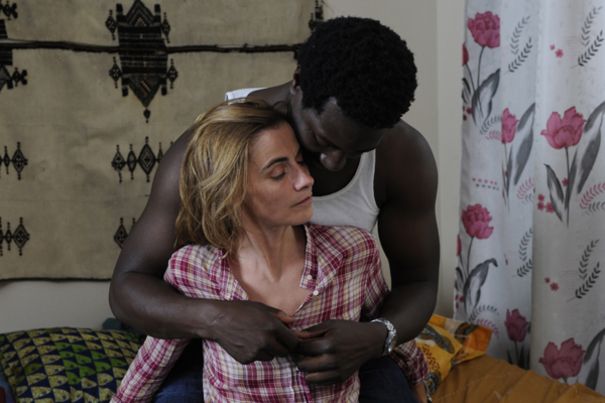Divorcee Sex at the Click of a Button
From drama to comedy and back: Berlinale Forum’s E-LOVE mixes old tragedies and new remedies in a woman's journey to self-discovery.

E-LOVE
Her name is Paule, Paule Zachmann, and her life used to be perfect. Paule had the perfectly suave husband, the perfectly adoring teenage daughter, and the perfectly astute attitude towards her approaching 50th birthday. The cracks are there for all to see: Paule is a tiresome worrier, and her husband can’t even go for a naked dip without her fretting over the waning tide. He is vigorously youthful, and twitches awkwardly when she gets too close, like a naughty schoolboy kept behind after class. Then one day she spots him with his firm-breasted, “Elle”-reading young lover; and the illusion is finally shattered.
A woman whose most cherished possession is the collected essays of Montaigne might easily descend into a wormhole of self-speculation. But with the help of her level-headed lesbian sister Paule joins an online dating service and creates an alter ego, Antigone, who is eight years her junior and far more interested in American television. As the allure of simple Antigone takes over, Paule disappears into a sordid and hysterical world of lonely, fumbling middle-aged sex … Belle de Jour without the mystery. This is the world of Berlinale Forum’s E-LOVE (Anne Villacèque, France), as seen through the bewildered eyes of a generation who wed before the web.
Like any escapist addiction, the novelty quickly wears thin and the spasms of conscience begin. Scraping the barrel for new “appointments”, Paule becomes besotted with Opale, a troubled bear of a man who appears more dangerously real than her previous trysts. Paule is coaxed into an uncomfortable, decadent orgy … and the fuse finally seems to blow. She returns home lonely, but at last everything around her is still. For too long she has been a series of mishaps and regrets. Now she is ready to be a person again, she is Paule Zachmann.
Anne Villacèque’s film has an honesty and gravity that are often difficult to see beneath the layers of light-hearted humour and camp, stylised aesthetics. The opening of the film is straight drama, but the moment Paule discovers her husband’s infidelity she quite literally drifts out of her body, and we are transported into a fleet-footed, skittish comedy. Villacèque’s comic timing is superb, and it is impossible not to giggle at the misfortunes of Anne Cosigny’s hopelessly open Paule. And all this situational comedy is accompanied by a dazzling cacophony of split-screens, jump cuts, and whip-pans.
But then when Paule realises the need to return to reality, the film slowly sinks back into a languid drama, and the viewers chide themselves for having so whole-heartedly embraced the debauched and irresponsible world of E-LOVE. The humour of the central section is not the work of a director who feels daunted by the depth of her subject matter; it is a conscious effort to ensure that the audience takes Paule’s journey with her.


301 Moved Permanently